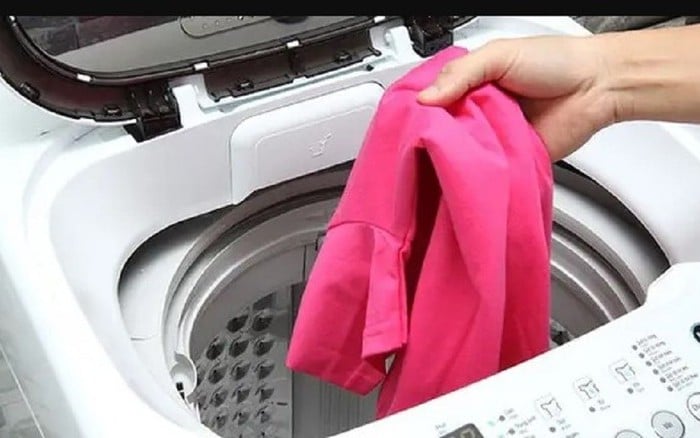Many people use washing machines, but end up with dirtier clothes as a result. It’s not that the machine is faulty, but rather, you may not be using it correctly. The following are some common mistakes people make when using a washing machine, which can lead to less-than-satisfactory results. Pay close attention to these points to ensure your clothes come out clean and fresh.
Common Mistakes When Using a Washing Machine that Affect Cleaning Performance
Avoid these mistakes to maintain the cleaning quality of your garments and prolong the lifespan and efficiency of your machine.
+ Overloading the Machine
One of the most common mistakes is cramming too many clothes into the washer at once. While this may seem like a time and energy-saving strategy, it actually hinders the removal of dirt and stains. When the machine is overloaded, clothes don’t have enough space to move and rub against each other effectively.

Overloading the machine can hinder the removal of dirt and stains.
Additionally, too many clothes can reduce the effectiveness of the detergent. The cleaning agents need space to work and dissolve stains. When the machine is overloaded, the detergent may not distribute evenly, impacting its cleaning power. To address this, divide your laundry into smaller loads, adhering to the machine’s specified capacity.
+ Not Sorting Clothes Before Washing
Failing to sort clothes by color and fabric type is a common mistake. Mixing all garments together can cause color bleeding and damage delicate fabrics. To maintain the cleanliness and longevity of your clothes, sort them by color (lights, darks, reds, blues, etc.), fabric type (cotton, wool, linen, etc.), and soil level (heavily soiled, lightly soiled, etc.). This will ensure the machine operates efficiently and your clothes come out cleaner.
+ Using Excess Detergent
Contrary to popular belief, more detergent does not mean cleaner clothes. Excess detergent may not dissolve completely and can leave unsightly white residue on your garments. It can also clog the machine’s filter, reducing its efficiency and lifespan. For optimal detergent use, carefully read the instructions on the packaging and use the recommended amount based on the load size.

Excess detergent can leave white residue and clog the machine’s filter.
+ Washing All Clothes with Hot Water
While hot water can be effective for certain loads, it’s not suitable for all fabrics. Some delicate materials may shrink, fade, or become damaged at high temperatures. Always check the care label on your clothes to determine the appropriate washing temperature. For durable fabrics like cotton, hot water can be used to sanitize. However, for delicate items, opt for cool or cold water to protect the fabric and maintain the freshness of your clothes.
+ Neglecting Regular Maintenance
One reason your clothes may not be coming out clean is a lack of regular maintenance for your washing machine. Built-up dirt, fabric fibers, and detergent residue can cause odors and reduce washing efficiency. To ensure optimal performance, it’s important to clean your machine at least once every three months.



































